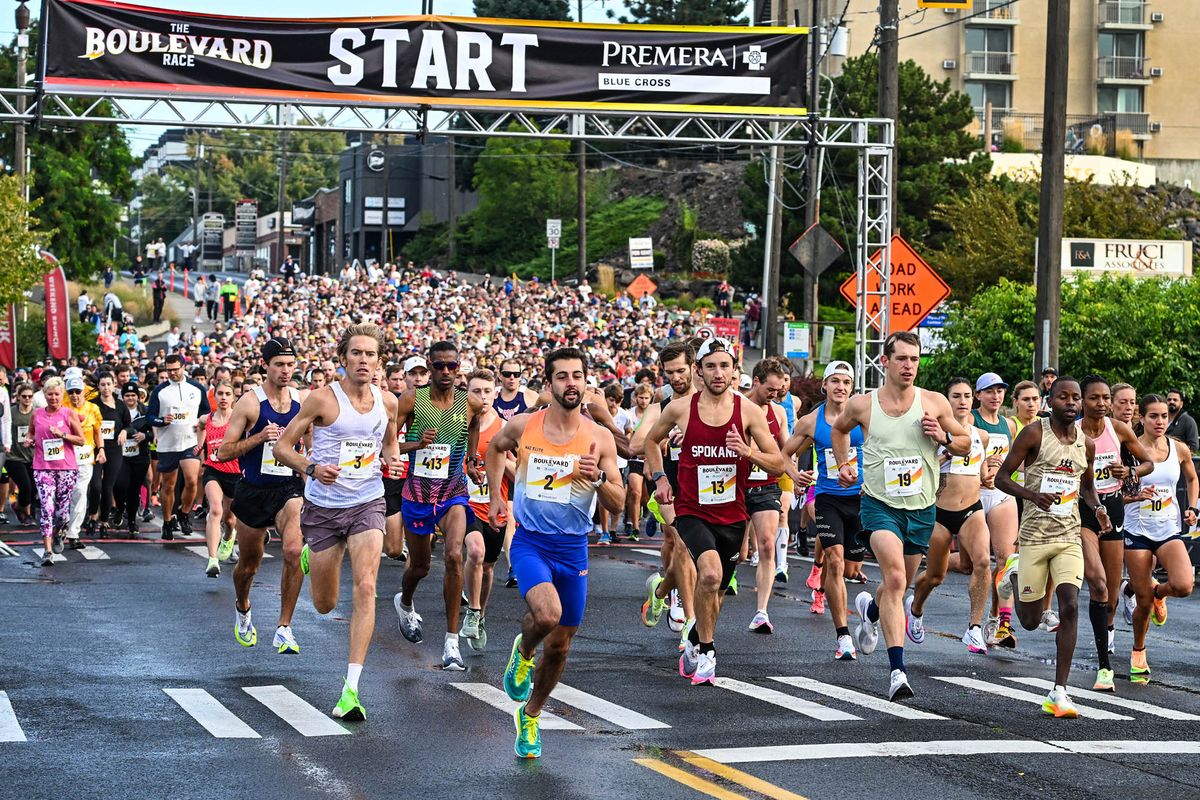Shadle Park graduate Nick Hauger finishes 24th in the marathon at Olympic Trials

Hopes of competing in the Olympics may be gone for now for Spokane native Nick Hauger, but within his household, the Olympic dream of competing this summer in Paris is still very much alive.
The former Shadle Park High School and University of Portland All-American finished 24th out of 150 finishers Saturday with a time of 2 hours, 15 minutes, 56 seconds at the 2024 Olympic Marathon Trials in Orlando, Florida.
“This was a tough but amazing day,” Hauger said after the race. “While it was the toughest day I’ve ever had, I walk away feeling grateful for the experience.”
In addition, former Eastern Washington University standout Sarah Reiter (2014-17) competed in the women’s marathon in Orlando, placing 79th out of 116 finishers in 2:42:36.
Hauger, who is married to British distance runner Calli Thackery, spent much of the past two years battling injuries. He isn’t sure what’s next for him, but he’ll have a better idea as he recovers from his first appearance at the trials and tries to avoid injuries in the future that beleaguered him this time around.
“I set out at a strong pace that my coaches and I felt would put me in the best position for a good one,” he said. “This felt great for a long time but quickly turned south as I entered the final loop with 8 miles to go. It took everything I had to put one foot in front of the other the last few miles.
“At that point, my only thoughts were to take in the moment and to get to Calli.”
Hauger had a 4:58 pace per mile through the first 10 miles, and covered the first half-marathon in 1:05:34. He was as high as 19th in the second half of the race but faded to finish with a 5:12 pace.
“I’m thankful to have had the experience despite wanting more on the day,” he said. “I’ll be better for it. This sets the stage for a great year as I aim for healthy starts and great training.
“You have to stay cautiously optimistic because you don’t know how the next few months will go. I’m still learning.”
What he for sure will be doing is coaching Thackery, helping her achieve her goal of representing Great Britain at the Olympics. She is from Yorkshire in England and was an All-America cross country runner at the University of New Mexico. They were married last November.
“It’s been flawless – I see her every day,” he said of the opportunity to coach her, with much of the training taking place in Flagstaff where he competes for the HOKA NAZ Elite professional team. “I know her well, I see how she ticks, I know how her body is doing and I know what works for her. I support her decision-making in the training process, and so far it’s been awesome.”
In lieu of a “winner advances” competition like in the United States, Thackery is hoping she will be selected in February by a panel that names the GB National Team, not just in the marathon but in other events.
She had a time of 2:22:11 time in her marathon debut last October in New York, ranking her second all time in Great Britain behind only star distance runner Paula Radcliffe (2:15:25). Radcliffe, who won the 2005 World Championship in the marathon but never secured an Olympic medal, held the world record with that time for 16 years from 2003-2019.
Not surprisingly, Hauger said Thackery is “in a really strong position” to make the team. She’ll run Feb. 17 in the Sevilla Marathon in Spain.
For Hauger, he’s hoping injuries are in the past. He overcame them to qualify for the Olympic Trials with a time of 2:16:02 on Dec. 3 at the California International Marathon.
“Life has a funny way of humbling you,” he said. “You look back and shake your head at your old self – if only you knew what was coming at the time.”
The worst injury was a femoral stress fracture, discovered after a track workout when he had pain in his hip flexor, quads and groin, and couldn’t walk normally.
“That was one of those injuries where it really raised a lot of red flags. I had to get an idea of what the heck was happening to my body, because I had pretty much done everything right.”
Hauger and Thackery went to doctors together in the United Kingdom to figure out what exactly the injury entailed.
“We got a lot of great insight,” he said. “I essentially learned that at the time I had pretty low bone density. I went to work building that bone density back up, and knock on wood, we’re staying healthy through it. I’m in a better spot for it.”
At one point, he took an entire month off from any activity. Once he started training again, he cross-trained as another way to let his body heal.
“If you push too much, you take away from that. We did things right and that’s all that matters.”